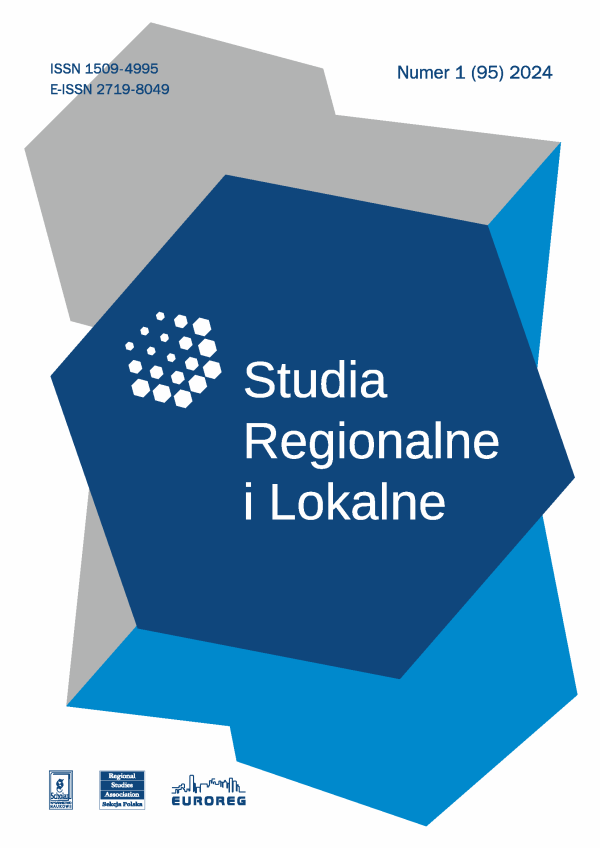Issue:
1(95)2024
Paweł Swianiewicz
The Evolution of Styles of Local Political Leadership: The Gap Between the Citizens’ Preferences and Their Perceived Styles of Leadership of Polish City Mayors
DOI: 10.7366/1509499519505
Ewolucja stylów lokalnego przywództwa politycznego. Luka między preferencjami mieszkańców a ich postrzeganiem faktycznego zachowania burmistrzów (prezydentów) miast w Polsce
Artykuł ma na celu poznanie preferencji mieszkańców Polski i postrzegania przez nich faktycznych stylów lokalnego przywództwa politycznego w Polsce w minionych dekadach. W szczególności analizuje się w nim wielkość luki pomiędzy preferowanymi i postrzeganymi stylami przywództwa. W artykule wykorzystuje się klasyfikację opracowaną przez Petera Johna i Alistaira Cole’a, wyróżniającą style bossowski, wizjonerski, zachowawczy i koncyliacyjny. Podstawowy materiał empiryczny pochodzi z ogólnopolskiego sondażu mieszkańców przeprowadzonego w grudniu 2022 r. oraz z badań ankietowych w kilku miastach – studiach przypadków – przeprowadzonych wiosną i latem 2023 r. Dodatkowo wykorzystano wcześniej publikowane wyniki badań prowadzonych za pomocą zbliżonych metod. Wyniki wskazują na rosnące preferencje dotyczące stylu koncyliacyjnego, zakładającego inkluzywność, zarówno jeśli chodzi o wybór celów strategicznych, jak i sposoby realizacji polityk miejskich. Wielkość „luki oczekiwań” wyjaśniana jest za pomocą cech społeczno-demograficznych respondentów (wiek, wykształcenie) oraz wielkości miasta. Młodsi oraz lepiej wykształceni respondenci w szczególnie dużym stopniu oczekują, że burmistrzowie będą chcieli angażować różnych interesariuszy w tworzenie i wdrażanie polityk lokalnych, a jednocześnie są bardziej krytyczni w ocenie rzeczywistych zachowań władz lokalnych.
The Evolution of Styles of Local Political Leadership: The Gap Between the Citizens’ Preferences and Their Perceived Styles of Leadership of Polish City Mayors
This article aims to explore residents’ preferences and perceptions of the actual styles of local political leadership in Poland over the past decades. In particular, it analyses the size of the gap between preferred and perceived leadership styles. The paper uses a classification developed by Peter John and Alistair Cole distinguishing city boss, visionary, care-taker, and consensus facilitator styles. The primary empirical material comes from a nationwide survey of residents conducted in December 2022 and surveys in a few case study cities conducted in the spring and summer of 2023. In addition, previously published results from surveys conducted using similar methods are used. The results indicate a growing preference for consensus facilitator style, assuming an inclusive style for both policy preparation and policy implementation. The size of the ‘expectations gap’ is explained by the socio-demographic characteristics of the respondents (age, education) and the size of the city. Younger and better educated respondents have a particularly high expectation that mayors should involve different stakeholders in the preparation and implementation of local policies, while at the same time being more critical in assessing the actual behaviour of local authorities.
Affiliation:
Paweł Swianiewicz: Uniwersytet Przyrodniczy we Wrocławiu, Zakład Studiów Społeczno-Ekonomicznych, ul. Grunwaldzka 55, 50-357 Wrocław, Polska; ORCID: 0000-0002-1890-6738;
pawel.swianiewicz@upwr.edu.pl 


